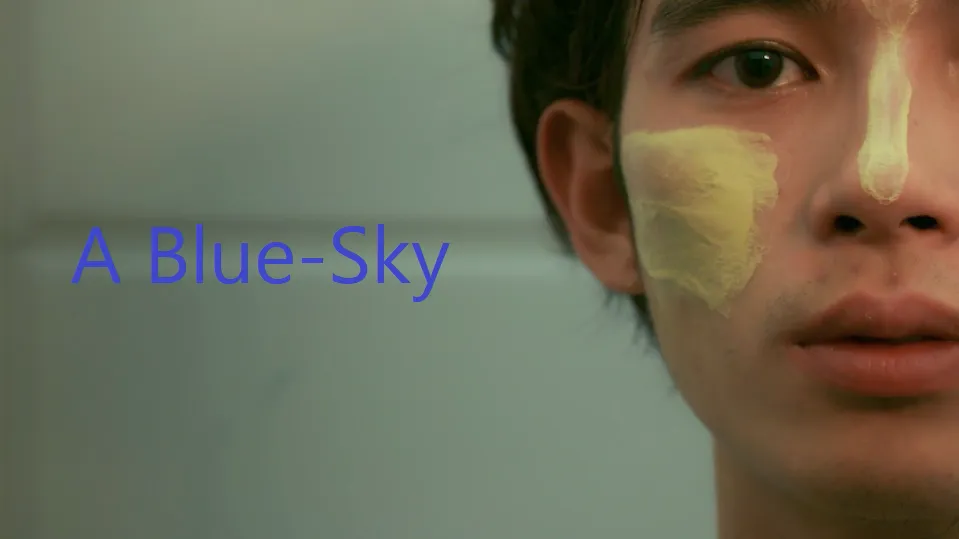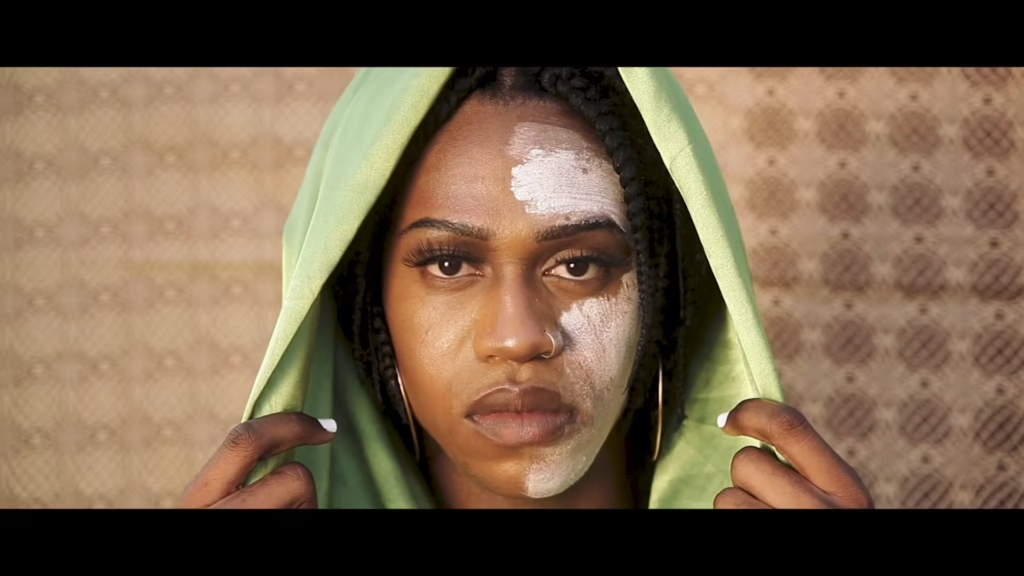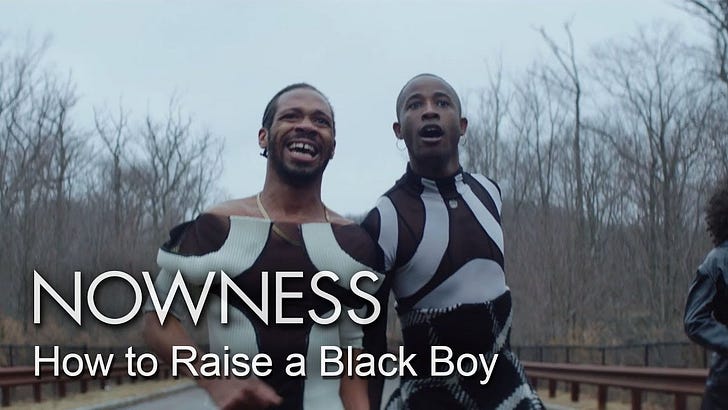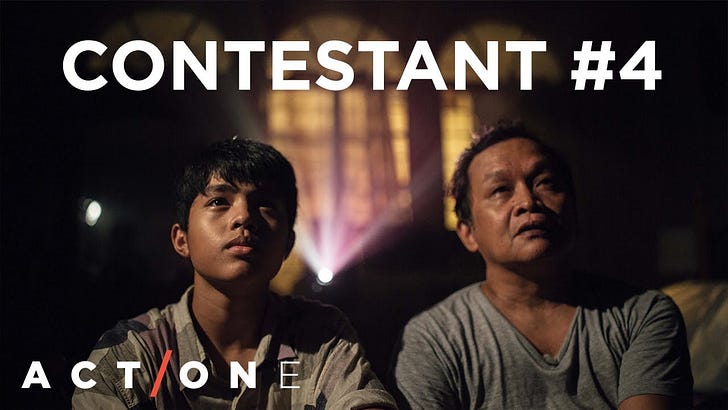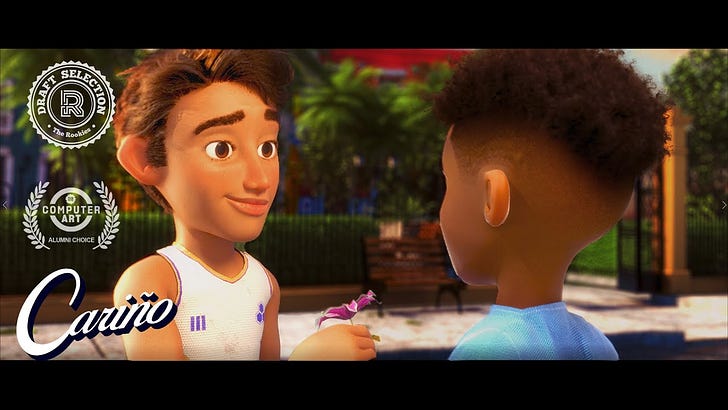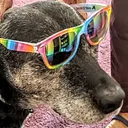Five queer short films are airing at Queer Cinema for Palestine
This week’s recommendations are films that screened at Queer Cinema for Palestine’s 2023 Film Festival No Pride in Genocide, a global event that took place last week across nine cities in six countries and online. All films from the festival are available to watch for free online through Sunday, December 17.
I would have liked to share these recommendations last week to give folks more time to watch the films, but I unfortunately caught COVID again, which has been extra hard given that I already have long COVID. On the bright side, it left me plenty of time in bed to watch all the films! I’m still not back to my “normal” long COVID level of health, but I at least have more energy and brain to write this week. I also want to say that every single film in the festival is fantastic; it was difficult to pick which to feature, but I chose to focus on those with queer Palestinian creators as much as possible. If you have time to watch them all, I definitely recommend doing so.
Horrifyingly, Israel’s unconscionable escalation in genocidal violence and settler colonial occupation of Palestine has not abated in the three weeks since my last newsletter. A short “temporary ceasefire” was not without continued violence by Israel towards Palestinians in Gaza and the West Bank, and Israel’s genocide has blazed on at full pace as soon as it was over. Israel continues to lay siege to hospitals, target and kill journalists and their families, conduct night raids of West Bank towns to kidnap and kill Palestinian residents, and, of course, blockade all but minuscule amounts of food, fuel, clean water, and medical supplies from entering Gaza. At least 18,400 Palestinians have been killed so far through direct combat violence, although this number is likely closer to 20,000 given that breakdowns in communication mean the Gaza Ministry of Health has not been able to accurately update its tolls since mid-November. And the added death toll from the breakdown of Gaza’s healthcare system, increased waterborne disease, starvation, thirst, and inclement winter weather is likely to be astronomical.
The resistance to Israel’s ongoing nakba also continues across the world, and we cannot let it slow. I know I’m repeating myself from previous newsletters but that is because it still needs to be said: we need to hold strong for Palestine. It’s all too easy, as this genocide continues into its third month, to let Palestine fade from our minds and hearts; it’s already happening in mainstream media and even on social media. We cannot allow that happen.
So please, continue to call your elected officials to call for a ceasefire, an end to arming Israel if that is something your country does, and freedom, self-determination, and the right to return for all Palestinians. Take part in protests and direct actions to halt the flow of weapons and military aid to Israel. Uplift the voices of Palestinians, and share your commitment to Palestinian liberation with all of your communities. Commit to the Boycott, Divest, and Sanctions (BDS) Movement, including the cultural boycott of Israel. Call out lies and propaganda from genocide-deniers and enablers. We can’t stop until Palestine is free, and we owe Palestinians our hope and resistance.
I also want to share a project I worked on before I got COVID in early December; it’s neither queer nor a short film, but hopefully still of interest to many of my followers. Responding to a call by ASHTAR Theatre in Ramallah, Palestine, I produced an audio-only production of The Gaza Monologues, collaborating with 28 friends and acquaintances in several countries to perform testimonies collected by ASHTAR Theatre from Gazan youth in 2010. Despite the decade plus since then, their stories continue to be all too relevant. Though audio-only, the production is hosted on YouTube to include subtitles for the monologues.
Learn more about the play, and, if you have the means, please consider donating to ASHTAR Theatre’s programs. You can also follow ASHTAR Theatre’s Instagram.

Chic Point, created by Sharif Waked, uses fashion to portray the deadly threats and injustices that Palestinians face under Israeli occupation. What Waked calls “fashion for Israeli checkpoints” includes designs that expose parts of each model’s torso, using zippers, weaved nets, buttons, collars, and more to create gaps and holes. The rationale for this becomes evident at the end of the film, when the flashy runway sequence is followed by black and white photos of Palestinians threatened by Israeli soldiers; the final slideshow plays with no music and highlights the chilling daily violence against Palestinians.
Creator Sharif Waked is an artist and filmmaker who was born in Nazareth to a Palestinian refugee family from the village of Mjedil, and now lives and works in Haifa and Nazareth. Waked’s director’s statement says, “Chic Point juxtaposes the fashion show with a series of documentary stills from checkpoints, placing the spectator in a position that paraphrases the soldier’s gaze. The haute fashion line transfers the marking from the body to the apparel, and to the ensuing playful possibilities inherent in the relationship between the clothes and those who are wearing and removing them.”
Chic Point
“Drag queens?”
Homecoming Queenz, created by Elias Wakeem, is a piece of live performance art that begins with Wakeem, who is Palestinian, and their friend Oz Marinov, who is white, Jewish, and Israeli, being confronted by Israeli border police in Ben Gurion Airport as they approach Customs. They are told to put their phones away, but Wakeem continues to record from inside a bag. The video then jumps back to Wakeem and Marinov on their flight in from Stockholm, where they had been performing at an art evening, with the audio of the encounter with border police voiced over it. The homophobic, racist questioning by the border police is voiced over footage of Wakeem and Marinov changing on the plane into drag for precisely this kind of confrontation.
“What was really interesting is that when I came back and they started the interrogation, they did not look at me as an Arab initially – it came on very much at the end of the conversation. The only bell that was ringing for them was that we’re homosexuals, we’re queer, and we’re smuggling drugs or something,” Wakeem said in the panel discussion at QCP Amsterdam, which utterly belies Israel’s efforts at pinkwashing that try to position Israel as a country that is safe for queer people.
Homecoming Queenz

“They said: ‘And is it a boy or girl?’ And he said: ‘I didn’t ask.’”
رسالة مني إلي | A Letter to Myself: Soha Bechara, directed by Omar Gabriel, is a memoir experimental film featuring Lebanese resistance fighter Soha Bechara speaking about her son Juan, who recently came out to her as trans. Bechara situates her support for her son alongside her longtime fight for the liberation of Israeli-occupied south Lebanon, for which she was imprisoned for ten years and suffered torture. Even though south Lebanon was freed in 2000, Lebanon continues to face violence from Israel, including shelling and use of white phosphorus gas in the past two months.
This film is part of a video series by director Omar Gabriel. “When I started the project رسالة مني إلي | A Letter to Myself, it came from a need to express what has been silenced for a while. For me as an artist, and also as a queer person, I wanted for me to have a role as well in sharing something authentic, especially since where I come from in Lebanon, the media has representation of the queer community has always been perceived as something back or sinful,” said Gabriel in the panel discussion at QCP Beirut. “So for me, as someone from the community who also lives the life of a queer person, I wanted to put on screen something more honest, that is more raw and more intimate, which required me to visit people in their places and ask them very intimate and personal questions. For me, this was very natural – I would say it’s like I’m visiting friends and having conversations with them.”
رسالة مني إلي | A Letter to Myself: Soha Bechara
“Just tonight, I want to disconnect my antennas.”
Antenne, a music video created by and starring Palestinian singer/songwriter Bashar Murad, is a brilliant, stylish look at how Murad wishes he could disconnect from the realities of Israeli settler colonialism, homophobia, transphobia, and other injustices, even if just in his mind. It’s also a total banger. “When you’re Palestinian and when you’re born into this kind of oppression and all of these shackles and limitations, it makes you want to be free from all kinds of oppression, not just the occupation: societal, gender restriction, anything that limits our freedom,” Murad said in the panel discussion at QCP Amsterdam. “It makes us hungry for freedom and truth.”
Antenne [Bashar Murad feat. Tamer Nafar]

“Don’t you ever change? Mix it up a little. Take a croissant or something.”
بوريكاس | Borekas, written and directed Saleh Saadi, follows a father (Yussuf Abu-Warda) giving his son (Anan Abu-Jaber) a ride to the airport at the end of the son’s two week visit home in Palestine. Their car breaks down on the way, and their argument over what to do about it uncovers other issues that have been simmering throughout the son’s visit.
Creator Saleh Saadi is from Basmat Tab’un, Palestine. بوريكاس | Borekas was his first short film; he has also written, directed, and acted in a second short film علم | A’lam | Flag in 2021.
بوريكاس | Borekas

